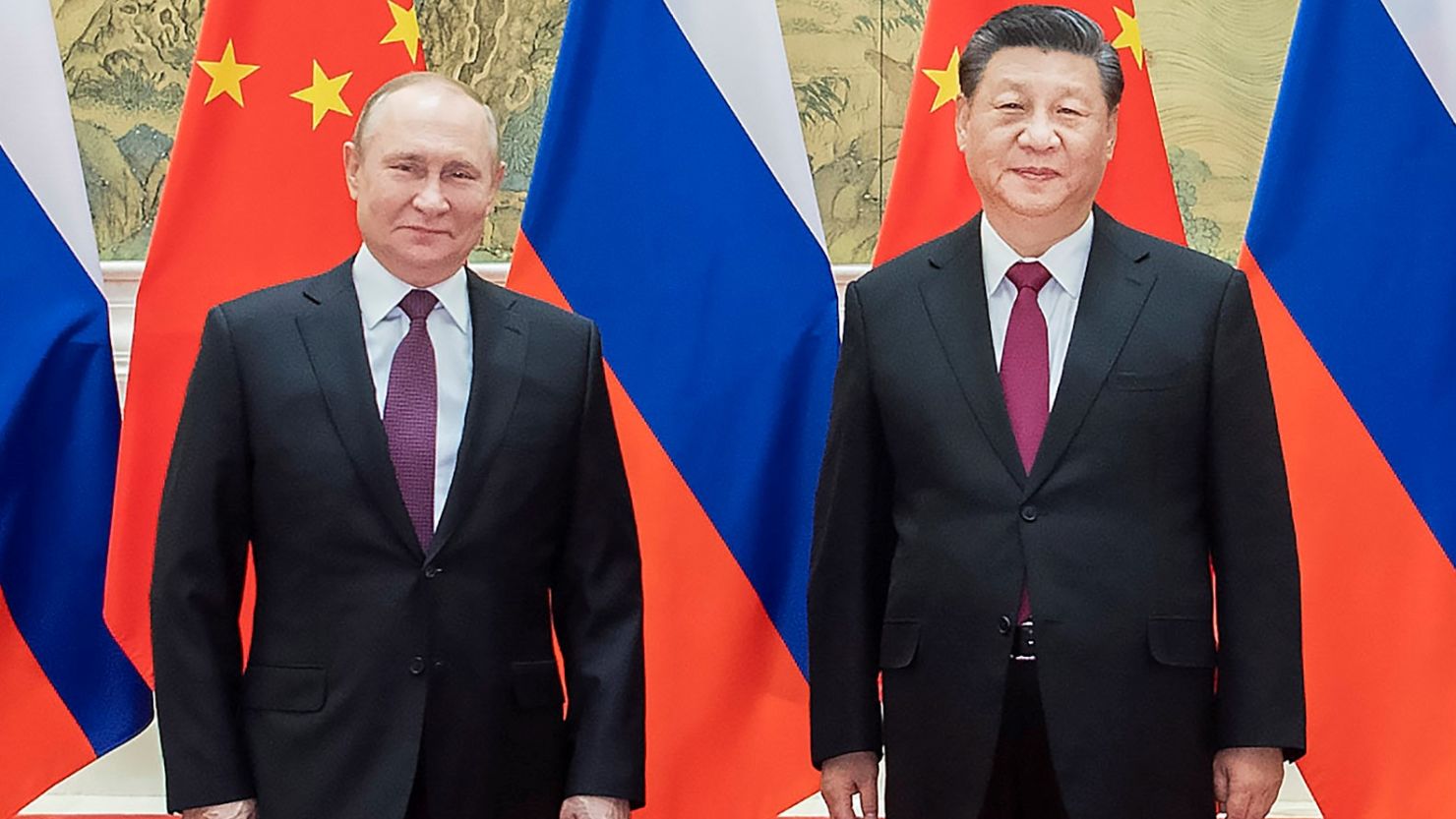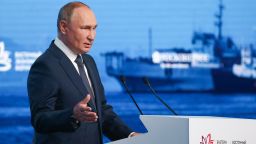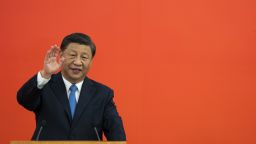Chinese leader Chinese leader Xi Jinping and Russian President Vladimir Putin will meet on the sidelines of a summit in Uzbekistan next week, Russia’s envoy to Beijing Andrey Denisov told reporters on Wednesday, according to Russian state news agency Tass.
The expected meeting at the Shanghai Cooperation Organization (SCO) summit would be the first face-to-face between the two leaders, who have established a close relationship, since the Russian invasion of Ukraine earlier this year.
It would also be the first overseas trip for Xi since the early days of the coronavirus pandemic, and come just weeks before a major political meeting in Beijing, where he is expected to break with tradition and assume a third term in power, cementing his role as China’s most powerful leader in decades.
“This summit promises to be interesting, because it will be the first full-fledged summit since the pandemic,” Denisov said, according to Tass.
“I do not want to say that online summits are not full-fledged, but still, direct communication between leaders is a different quality of discussion … We are planning a serious, full-fledged meeting of our leaders with a detailed agenda, which we are now, in fact, working on with our Chinese partners,” the diplomat said.
On Wednesday, China’s number three leader Li Zhanshu, a member of the Chinese Communist Party’s Politburo Standing Committee, became the highest ranking official to leave China since 2020, when he arrived in Vladivostok to attend the Eastern Economic Forum. Li was expected to meet Putin on Wednesday, according to Tass.
The expected meeting next week between Xi and Putin – and the choice of destination for Xi’s first overseas trip – signals the importance of the Russian relationship for China, even in the face of international blow back against Moscow after its unprovoked invasion of Ukraine earlier this year.
Moscow and Beijing have emerged as closer partners in recent years as both face tensions with the West, with Xi and Putin declaring the two countries had a “no limit” partnership weeks before Russia’s invasion of Ukraine. Beijing has since refused to condemn the aggression, instead repeatedly laying blame for the conflict on NATO and the United States.
When asked about travel plans for Xi to Central Asia this month, China’s Ministry of Foreign Affairs on Wednesday said they could not provide any information.
The potential visit to Central Asia as Xi’s first official visit outside China since early 2020 would also be a nod to his own legacy in boosting China’s international profile during his decade in power. Xi announced his flagship Belt and Road Initiative during a 2013 visit to Kazakhstan.
The SCO summit will be held from September 15 in Samarkand, Uzbekistan. The organization is compromised of China, India, Kazakhstan, Kyrgyzstan, Russia, Pakistan, Tajikistan and Uzbekistan.
Alfred Wu, an associate professor at the Lee Kuan Yew School of Public Policy at the National University of Singapore, said Xi’s decision to take a rare overseas trip just weeks before China’s consequential 20th Party Congress could be interpreted as sign of the leader’s confidence and strength.
“It shows that most decisions about personnel arrangements for his third term have likely been made … I don’t really think he’s under challenge domestically,” Wu said.
Putin is one of only a handful of world leaders that Xi has met with face-to-face in since early 2020. The Russian leader traveled to Beijing for its Winter Olympics in February this year, and was seen as the most prominent world leader to join the event, which a number of Western nations boycotted, citing China’s human rights record.
It was at that meeting that the two framed their “no limit’ partnership, and released a 5,000 word document voicing their shared opposition to the “further enlargement of NATO” and pledging to “remain highly vigilant about the negative impact of the United States’ Indo-Pacific strategy.”
China has continued to speak out against Western sanctions against Moscow and refused to condemn Russia,while Chinese energy companies have bought Russian energy supplies at record levels in a boon to Russian business amid Western sanctions.
On Tuesday, Russian energy giant Gazprom said it had signed an agreement to start switching payments for gas supplies to China to yuan and rubles instead of dollars, a development that was referenced by Putin in his address Wednesday at the Eastern Economic Forum.
While Russia and China have been drawn closer by respective frictions with the West, the personal relationship between the two leaders, in which Xi has described Putin as his “best and bosom friend,” is also thought to bolster the dynamics of their strengthening rapport on the national level.
The two leaders have spoken twice over the phone since Russia’s invasion of Ukraine, according to official readouts. Their last call, which fell on Xi’s 69th birthday, continued a trend of the two leaders celebrating each others’ birthdays when they coincide with diplomatic engagements.
China was “willing to work with Russia to promote solidarity and cooperation among emerging market countries … and push for the development of the international order and global governance towards a more just and reasonable direction,” Xi said at that time.
The expected trip and sidelines summit this month would only serve to bolster that relationship, in itself making a significant statement about where China’s current and future leader sees his country’s allegiances.
Wu in Singpore said he expects the meeting to further consolidate both the friendship between Xi and Putin – and between China and Russia. He said it is unsurprising that Xi would choose to meet Putin instead of leaders from the US or Europe in his first overseas trip since the pandemic.
“If he goes to the US or Europe, he’ll likely face a lot of challenges. When he goes to Putin, he’ll get all kinds of praises from his friend, who’s happy that he’s a strongman,” Wu said.




